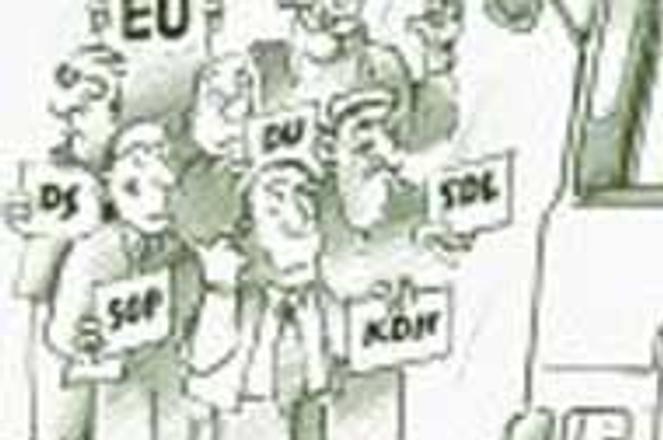illustration: Igor Lyskov
Getting a two-hour interview with Vladimír Mečiar is no easy feat, at least for The Slovak Spectator, which tried numerous times to gain entrance to the fortress that was Mečiar's press department while he was Prime Minister during the 1990's.
Clearly, now that he is in opposition, the former Slovak leader has had a change of heart where the press is concerned, if one is to draw any conclusions from the interview he gave to this paper on November 19. And yet, as satisfying as it was to sit down with the elusive Mečiar and pepper him with questions, his answers by themselves seem to lack something of the essence of the man.
For example, reading Mečiar's account of his decision to take Slovakia out of the Czechoslovak federal arrangement doesn't have the same impact as watching him tell it in person, his eyes shining with zeal and pride. And if you don't see his face redden and hear his voice sharpen, the visceral anger Mečiar clearly still feels towards former President Michal Kováč isn't made explicit in the transcript of that lunch-time meeting.
Above all, Mečiar in person comes across as sincere, even somewhat shy. He truly believes in his vision for Slovakia, and means every word he says. He seems far from the pathological liar that his media enemies have made him out to be, nor is he the manipulative cynic who cries for the plight of people in the countryside while stealing the nation's richest companies.
Mečiar has played fast and loose with the truth as a politician, and has at least allowed theft to occur on his government watch. But these reprehensible acts, in the man's own eyes, served what he believed was the higher good - the founding of an independent country that was not a lapdog to international capital.
All of this is not an attempt to rehabilitate Mečiar's image, to apologize for his excesses or pander to his followers. It is, rather, an attempt to get at the truth - that Mečiar isn't going to go away, that he will likely win the 2002 elections, and that both foreign institutions and domestic politicians are going to have to learn how to handle him better than they have in the past.
Obviously, the largest gap that exists between Mečiar and any potential partner is the issue of trust. Indeed, given the repression suffered by Mečiar's political opponents during the six years of his rule, the damage is almost certainly done. But if we challenge the basic premise of his jaded critics - that Mečiar is a power-hungry authoritarian who can only be trusted to serve his own interests - and submit that the man has principles, however misguided, then people may at least have a basis for co-operation.
It is the humble opinion of this newspaper that if Mečiar does have a principle by which he stands, it is the welfare of the country and its people - welfare, of course, as defined by Mečiar. If this be true, it may be possible for politicians and diplomats to convince him of what he rejected in the 1990's - that EU and NATO entry, respect for the law, a strong civil society and a plurality are the true interests of the Slovakia he claims to love.
In the end, the very fact that Mečiar gave this interview to The Slovak Spectator is evidence that he is at least thinking about his image in the West. Having seen after last elections just how much of a handicap it is to be politically isolated, he may now be open to doing what it takes to make friends.


